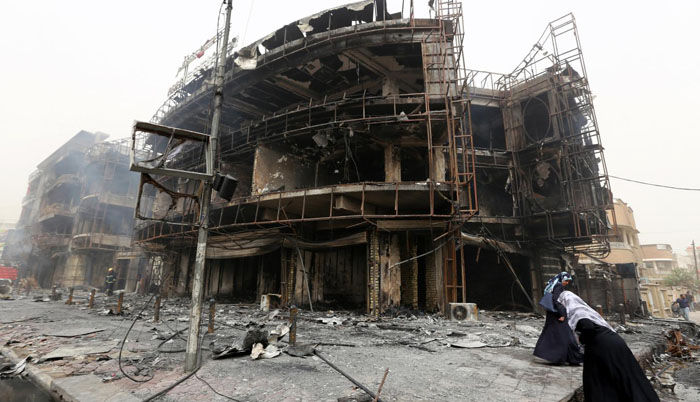JACK MOORE
It started with an audio message on May 22. Abu Muhammad al-Adnani called on followers of the Islamic State militant group (ISIS) to launch deadly attacks on the United States and Europe during the Islamic holy month of Ramadan, which would run from June 6 to July 7.
"Ramadan, the month of conquest and jihad. Get prepared, be ready...to make it a month of calamity everywhere for the non-believers...especially for the fighters and supporters of the caliphate in Europe and America," Adnani said.
"The smallest action you do in their heartland is better and more enduring to us than what you would if you were with us. If one of you hoped to reach the Islamic State, we wish we were in your place to punish the Crusaders day and night.”
The followers heeded Adani’s orders and carried out a series of attacks outside the group’s self-proclaimed caliphate that would render this Ramadan deadlier than the last.
In 2015, as the radical Islamist group continued to show that it was the flag bearer of the global jihad, Ramadan saw ISIS attacks on the Syrian-Kurdish city of Kobane, killing some 230 civilians, a lone wolf decapitation in France’s Saint-Quentin-Fallavier, a suicide bombing on a Shia mosque in Kuwait City taking the lives of 27 people, and a massacre on Sousse beach in Tunisia, leaving 39 people, mostly European tourists, dead.
The group killed almost 300 people in these attacks but in the Ramadan just passed, the group’s operatives or supporters have almost doubled that total, slaying more than 500 people.
From the assassination of a Coptic Christian priest in Egypt’s Sinai Peninsula on June 30 to the biggest attack in the group’s history with the death of at least 292 people in a Baghdad car bombing on July 3, the group has shown that its fighters can reach its desired targets to cause maximum casualties, in spite of territorial losses in both Iraq and Syria.
The group targeted Westerners, in Orlando at an LGBT nightclub, in Paris at the home of a police officer and in a cafe in Bangladesh. But it has also targeted Muslims, in suicide bombings on Saudi Arabia’s Medina, one of Islam’s holiest sites, and in Yemen; Istanbul’s Ataturk Airport; Jordan; a Shiite shrine north of Baghdad; and another suicide bomb blast in Baghdad earlier in the month. The group also targeted Christians in the Lebanese village of Qaa at the end of June.
ISIS has dominated the headlines once again in the Islamic holy month, grabbing the spotlight in a period when more than a billion celebrate their faith. Authorities have tried to downplay their involvement in several plots, such as Dhaka or Orlando, but the group has been quick to promote their influence in such bloody incidents on its semi-official Amaq news agency, which predominantly operates on the encrypted messaging app Telegram.
The numerous attacks mean that, on average, 16 people died at the hands of the group outside the territory it holds every day during the holiday.
As the group continues to lose territory, such as Fallujah and Ramadi in Iraq, and the dream of a caliphate diminishes, it will become increasingly difficult for it to inspire lone wolf attackers around the world. But, for now, the group has been able to continue the trend of mobilizing individual and radicalized militants to carry out international attacks.
“We’re looking at a paradox because on the one hand Islamic State is clearly getting weaker as an organization in its strongholds of Iraq and Syria and yet the impression that many people have is that the group is more dangerous than ever, especially outside its core conflict zone,” says Max Abrahms, professor of political science at Northeastern University and member of the Council on Foreign Relations.
“I believe that Islamic State is indeed getting weaker as an organization but is more dangerous internationally. It’s not as if you diminish a group’s capability and that will be immediately reflected in less bloodshed,” he adds.
While al-Qaeda had a few thousands operatives among its ranks at its zenith, according to CIA Director John Brennan, ISIS has tens of thousands. The United Nations has said that there are some 30,000 “foreign terrorists” that are ready to head to their home nations as the group loses more and more territory.
The ISIS leadership also ordered foreign supporters of the group to carry out attacks in their home countries as opposed to traveling to Syria as it became increasingly difficult to traverse Europe and through Turkey to get to the self-proclaimed caliphate. Altogether, the success of ISIS’s message and its increasing threat internationally means that the world will likely continue to experience more of the senseless bloodletting seen in Ramadan.







Comments